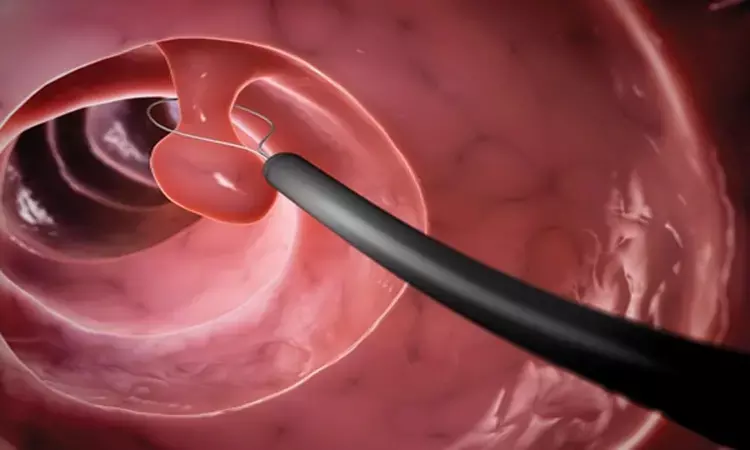- Home
- Medical news & Guidelines
- Anesthesiology
- Cardiology and CTVS
- Critical Care
- Dentistry
- Dermatology
- Diabetes and Endocrinology
- ENT
- Gastroenterology
- Medicine
- Nephrology
- Neurology
- Obstretics-Gynaecology
- Oncology
- Ophthalmology
- Orthopaedics
- Pediatrics-Neonatology
- Psychiatry
- Pulmonology
- Radiology
- Surgery
- Urology
- Laboratory Medicine
- Diet
- Nursing
- Paramedical
- Physiotherapy
- Health news
- Fact Check
- Bone Health Fact Check
- Brain Health Fact Check
- Cancer Related Fact Check
- Child Care Fact Check
- Dental and oral health fact check
- Diabetes and metabolic health fact check
- Diet and Nutrition Fact Check
- Eye and ENT Care Fact Check
- Fitness fact check
- Gut health fact check
- Heart health fact check
- Kidney health fact check
- Medical education fact check
- Men's health fact check
- Respiratory fact check
- Skin and hair care fact check
- Vaccine and Immunization fact check
- Women's health fact check
- AYUSH
- State News
- Andaman and Nicobar Islands
- Andhra Pradesh
- Arunachal Pradesh
- Assam
- Bihar
- Chandigarh
- Chattisgarh
- Dadra and Nagar Haveli
- Daman and Diu
- Delhi
- Goa
- Gujarat
- Haryana
- Himachal Pradesh
- Jammu & Kashmir
- Jharkhand
- Karnataka
- Kerala
- Ladakh
- Lakshadweep
- Madhya Pradesh
- Maharashtra
- Manipur
- Meghalaya
- Mizoram
- Nagaland
- Odisha
- Puducherry
- Punjab
- Rajasthan
- Sikkim
- Tamil Nadu
- Telangana
- Tripura
- Uttar Pradesh
- Uttrakhand
- West Bengal
- Medical Education
- Industry
Cold forceps polypectomy as good as cold snare polypectomy for removing small polyps during colonoscopy

Cold forceps polypectomy (CFP) was not inferior to cold snare polypectomy (CSP) in the total excision of ≤3 mm non-pedunculated polyps, says an article published in The American Journal of Gastroenterology.
Because leftover neoplastic tissue may play a role in interval malignancies, optimizing full resection during colonoscopy is critical. The US Multi-Society Task Force supports cold snare polypectomy for polyps as little as ≤5 mm and as large as 6-9 mm. However, it is unclear if CSP has a substantial benefit over cold forceps polypectomy for polyps smaller than ≤3 mm. Given the few studies with varied outcomes, Mike T. Wei and colleagues wanted to conduct a randomized clinical study, the TINYPOLYP trial, to better understand the effective therapy of polyps ≤3 mm.
This is single-center, randomized, clinical trial comparing CFP and CSP for 3 mm non pedunculated polyps included patients aged 18 and above who were having a colonoscopy. Polyps were randomly assigned to be removed with CFP or CSP during each colonoscopy. Two samples were collected from the polypectomy margin after the procedure. The key noninferiority outcome was the full resection rate, which was defined as the absence of remnant polyps in margin biopsies.
The key findings of this study were:
1. A total of 179 patients were involved in the study where 279 polyps of 3 mm were removed in total, with 138 in the CSP group and 141 in the CFP group.
2. The mean polypectomy time for CSP was longer than for CFP, despite the fact that CFP removed more polyps in more than one piece than CSP.
3. Positive margin biopsies were found in two instances per cohort, with a 98.3% total resection rate in both groups.
4. There was no substantial difference in complete resection rates between groups, suggesting that CFP was not inferior to CSP.
In conclusion, the findings of TINYPOLYP indicate that polypectomy of ≤3-mm polyps may be conducted safely with cold forceps or cold snare. More research is needed to adequately assess the effectiveness of giant cold forceps in the excision of polyps 4-5 mm.
Reference:
Wei, M. T., Louie, C. Y., Chen, Y., Pan, J. Y., Quan, S. Y., Wong, R., Brown, R., Clark, M., Jensen, K., Lau, H., & Friedland, S. (2022). Randomized Controlled Trial Investigating Cold Snare and Forceps Polypectomy Among Small POLYPs in Rates of Complete Resection: The TINYPOLYP Trial. In American Journal of Gastroenterology (Vol. 117, Issue 8, pp. 1305–1310). Ovid Technologies (Wolters Kluwer Healthy). https://doi.org/10.14309/ajg.0000000000001799
Neuroscience Masters graduate
Jacinthlyn Sylvia, a Neuroscience Master's graduate from Chennai has worked extensively in deciphering the neurobiology of cognition and motor control in aging. She also has spread-out exposure to Neurosurgery from her Bachelor’s. She is currently involved in active Neuro-Oncology research. She is an upcoming neuroscientist with a fiery passion for writing. Her news cover at Medical Dialogues feature recent discoveries and updates from the healthcare and biomedical research fields. She can be reached at editorial@medicaldialogues.in
Dr Kamal Kant Kohli-MBBS, DTCD- a chest specialist with more than 30 years of practice and a flair for writing clinical articles, Dr Kamal Kant Kohli joined Medical Dialogues as a Chief Editor of Medical News. Besides writing articles, as an editor, he proofreads and verifies all the medical content published on Medical Dialogues including those coming from journals, studies,medical conferences,guidelines etc. Email: drkohli@medicaldialogues.in. Contact no. 011-43720751


